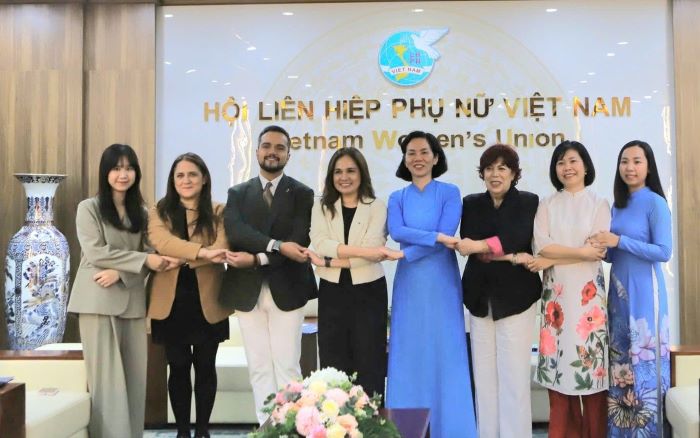GENDER: Governments Must Be Held Accountable to Meet MDGs
Participants at the public forum addressing the Millennium Development Goal (MDG) of gender equality recognised that if the goals were to be realised before 2015, there was an urgent need world governments to be accountable to their people.
The MDGs are eight goals that over 180s countries agreed to achieve by 2015 in response to the world’s main development challenges. These include among others: gender equality; the eradication of poverty; and to be able to improve maternal health.
The well-attended forum, held in
Meryem Aslan (Corr), the Executive Director of United Nations Development Fund for Women (UNIFEM) in
Vulnerable employment is just one of the targets that measures poverty. UNIFEM predicts that because of the world economic crisis the vulnerable employment rate of women is expected to range between 50.5-54.7%, compared to the range of 47.2-51.8% for men.
Aslan noted that despite the commitment at the World Conference in Beijing in 1995 to see 30% of women worldwide holding seats in governments, currently there were only 18,4% of women.
“Apart from Nordic countries, the
Where participation of women in parliament is high there is affirmative action.”
Aslan said there wasn’t a question about what was needed to be done to achieve gender parity in governments, affirmative action just needed to be implemented.
“Sometimes achieving goals are hard. But there is no need to do any further research in achieving this goal. We know what works. Affirmative action works.”
She said that although the MDG movement had made a great achievement through mobilising political will to acknowledge the challenges faced, this political will was still needed to sustain and oversee the implementation of these changes.
Aslan said that the gender problems still being faced came down to the fact that governments were not being held accountable by the people to fulfil the promises made in the MDGs.
“There is a lack of political will and we will have to see what we need to do as citizens so that accountability comes to pass,” Sylvia Mwichuli (corr) from the UN Millennium Campaign agreed.
Njoki Ndung’u (corr) a former Kenyan member of parliament questioned if her country would ever be able to the development goals, especially those relating to women. She said even though the Kenyan parliament had formed a committee on equal opportunities, it was still too early to celebrate any real victory when it came to gender equality.
The Kenyan constitution, she said was still very contradictory when it came to the rights of women. She said
Ndung’u said in the past Kenyan’s president had always talked about the possibility of a gender violence bill in parliament but this year, after Mwai Kibaki (corr) took office, this fell away.
“Suddenly violence against women is not important, even though the most of the violence perpetrated after the elections last year were against women.”
Widespread violence ensued after Kibaki was declared winner of the presidential elections in December 2007. Thousands of Kenyan women were reported to have been raped and assaulted and at least 3000 people were reported killed.
Mwichuli said despite the tragedies
“If we put the might of pressure on our governments we begin to take charge of our lives as citizens. There are many situations in
Lucia Kiwala (Corr), the head of the Gender Mainstreaming Unit at UN-HABITAT agreed: “We need to cultivate the political will. I believe when we get our act together we can achieve quite a few of the MDGs.”
(Ends 03/08/09)







